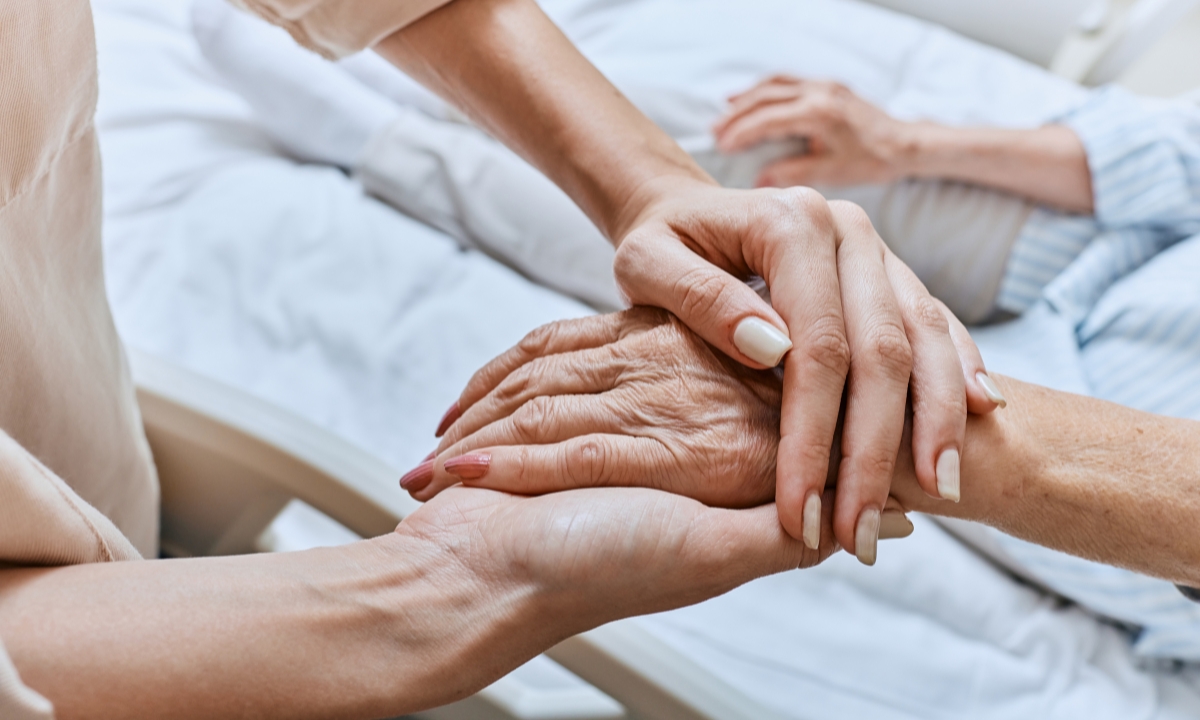Caring for a loved one with Parkinson’s disease is both a challenging and rewarding experience. Parkinson’s disease is a progressive neurological disorder that affects movement, balance, and coordination, often leading to significant lifestyle changes for both the individual and their family. With the right support, however, it is possible to maintain a high quality of life for your loved one, even as the disease progresses. At Reliant Home Care Services, we understand the complexities of Parkinson’s care and offer tailored in-home services designed to provide comfort and support to individuals living with this condition.

Understanding Parkinson’s Disease
Parkinson’s disease affects nearly one million Americans, with about 60,000 new cases diagnosed each year, according to the Parkinson’s Foundation. It typically occurs in people over the age of 60, though younger individuals can also develop the disease.
Parkinson’s is caused by the degeneration of neurons in the brain that produce dopamine, a chemical that helps regulate movement. As dopamine levels drop, individuals begin to experience symptoms such as:
- Tremors or shaking, usually starting in the hands or fingers
- Slowed movement (bradykinesia)
- Rigid muscles
- Impaired posture and balance
- Changes in speech and writing
- Difficulty with fine motor skills
As the disease progresses, these symptoms can become more severe, making daily tasks increasingly difficult. Understanding the nature of the disease is the first step in providing effective care and support for your loved one.
Challenges of Caring for Someone with Parkinson’s
Caring for someone with Parkinson’s disease requires patience, flexibility, and a good understanding of the disease. Each stage of Parkinson’s presents different challenges, and caregivers must adapt to the changing needs of their loved one.
Mobility and Balance Issues
One of the most significant challenges is managing the physical symptoms of Parkinson’s, particularly issues with mobility and balance. Falls are common among individuals with Parkinson’s due to their slower movements and impaired balance. According to Parkinson’s UK, about 60% of people with Parkinson’s experience falls each year, and 10% of these falls result in serious injury.
To reduce the risk of falls, it’s important to create a safe home environment. This may involve removing tripping hazards, installing grab bars in the bathroom, and ensuring that floors are non-slip. Additionally, providing mobility aids such as walkers or canes can help your loved one move around more safely.
Cognitive and Emotional Changes
In addition to physical symptoms, Parkinson’s can also affect cognitive function and emotional health. Many individuals experience mood changes, depression, anxiety, and memory problems. As a caregiver, it’s essential to offer emotional support and understanding, as these changes can be particularly frustrating for your loved one.
Maintaining open communication and encouraging activities that stimulate the mind, such as reading, puzzles, or music therapy, can help manage cognitive decline and keep your loved one engaged.
Tips for Caring for a Loved One with Parkinson’s
Caring for someone with Parkinson’s disease can be overwhelming, but there are several strategies that can help you manage daily challenges and provide better care:
Educate Yourself: The more you know about Parkinson’s disease, the better equipped you will be to provide care. Take time to research the disease, join support groups, and consult healthcare professionals for advice.
Establish a Routine: Parkinson’s symptoms can be unpredictable, but having a structured daily routine can provide a sense of stability for both the caregiver and the person with Parkinson’s. A consistent schedule for meals, medications, and activities helps reduce stress and anxiety.
Encourage Exercise: Physical activity can help maintain mobility and flexibility in individuals with Parkinson’s. Encourage your loved one to participate in activities like walking, swimming, or yoga, which can help manage symptoms and improve overall well-being.
Seek Emotional Support: Don’t be afraid to ask for help from friends, family, or support groups. Caring for someone with Parkinson’s can be emotionally draining, and it’s important to take care of your own mental health as well.
How In-Home Care Can Help
At Reliant Home Care Services, we understand the complexities of Parkinson’s care and the toll it can take on family members. Our in-home care services are designed to provide personalized support that allows individuals with Parkinson’s to maintain their independence while receiving the care they need.
Personalized Care Plans
Every individual with Parkinson’s experiences the disease differently, which is why our care plans are tailored to meet the unique needs of each client. Our caregivers assist with daily activities such as bathing, dressing, meal preparation, and medication management. This allows your loved one to remain in the comfort of their home while receiving the help they need with daily tasks.
Physical Assistance
Our caregivers are trained to help individuals with Parkinson’s manage their mobility issues. We provide assistance with walking, transferring from bed to chair, and using mobility aids. Our goal is to reduce the risk of falls and keep your loved one safe and comfortable at home.
Emotional and Cognitive Support
Parkinson’s not only affects the body but also the mind. Our caregivers provide companionship and emotional support, helping to alleviate feelings of isolation or frustration. We also engage clients in mentally stimulating activities to support cognitive health.
Respite Care for Family Caregivers
Caring for a loved one with Parkinson’s can be a full-time job, and it’s important for family caregivers to take breaks to avoid burnout. Reliant Home Care offers respite care services, allowing you to take time for yourself while ensuring your loved one receives the best possible care.

You’re Not Alone
Caring for a loved one with Parkinson’s disease is a journey that requires patience, compassion, and the right support. By educating yourself about the disease, creating a safe and supportive environment, and seeking help when needed, you can ensure that your loved one has the best quality of life possible.
At Reliant, we are here to help you navigate this journey. Our in-home care services provide the physical, emotional, and cognitive support that individuals with Parkinson’s need to live safely and comfortably at home. Contact us today to learn more about how we can support you and your loved one.

